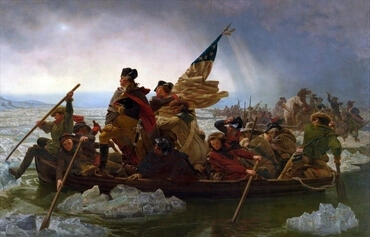Arcana Coelestia # 120
120. Like Egypt, the Euphrates too means knowledge or facts, and also sensory evidence from which facts are obtained. This is clear from the Word in the Prophets, as in Micah, She, my enemy, said, Where is Jehovah your God? A day on which He will build your walls. On that day what has been determined will be absent afar off. That day also He will come to you from Asshur, and to the cities of Egypt and to the River (the Euphrates) Micah 7:10-12.
The Prophets spoke in this way when referring to the coming of the Lord, who was going to regenerate man so that he would become as a celestial man. In Jeremiah,
What have you to do with the way to Egypt, to drink the waters of Shihor? And what have you to do with the way to Asshur, to drink the waters of the River (the Euphrates)? Jeremiah 2:18.
Here similarly 'Egypt' and 'the Euphrates' stand for facts, and 'Asshur' for reasonings based on them. In David,
You did cause a vine to journey out of Egypt. You did cast out the nations, You did plant it. You did send out its shoots even to the sea, and its little branches to the River (the Euphrates) Psalms 80:8, 11.
Here too 'the river Euphrates' stands for sensory evidence and factual knowledge. Indeed the Euphrates was the boundary to Israel's territories in the direction of Asshur, just as factual knowledge in the memory is the boundary of intelligence and wisdom of the spiritual and celestial man. The same is meant by these words addressed to Abraham,
To your seed I will give this land, from the river of Egypt even to the great river, the river Euphrates. Genesis 15:18.
Both of these two boundaries have the same meaning.
Command

To command is to give an order that something must be done, and is directed to an individual, or a group. It is an imperative, not a suggestion. Commanding can be done in two ways, or from two differing motives. It often comes in an organization, where it is used to impose an order that is necessary to do the organization's work, such as a business, or government or an army, and can be legitimate, or is used in a family by parents to maintain an orderly home. But it can also be used by a person who loves power and having gotten it in some way, loves to impose his or her will on others for selfish gratification. So one motive is love of a use, or of good, and the other is for the love of self, or possessions. The Lord, from His infinite love, has given mankind commandments because He is order itself, and knows that our happiness to eternity depends on our acceptance of His order of creation, which ultimately is the only order that exists.






